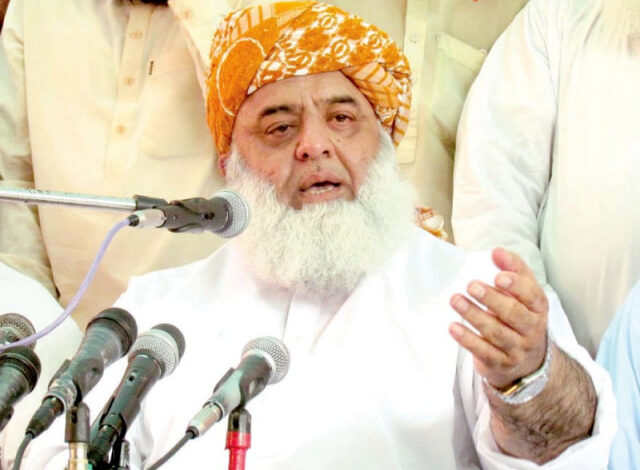Additionally, the JUI-F jirga rejects the ex-Fata committee.

A committee established to reinstate the traditional jirga system in the merged tribal districts, which were formerly a part of the Federally Administered Tribal Areas (Fata), has drawn strong criticism from a tribal jirga led by the Jamiat Ulema-e-Islam-Fazl (JUI-F).
A decision regarding the merged districts without adequate public representation and consultation would be unacceptable, according to the jirga that was held in Peshawar on Sunday.
Tribal leaders and elders from the combined districts of Khyber-Pakhtunkhwa (K-P) were brought together by the jirga, which was chaired by JUI-F chief Maulana Fazlur Rehman.
Key recommendations were presented by senior leaders such as Maulana Jamaluddin, Maulana Abdul Rasheed, Malik Nasrullah Khan, Malik Shaheen, Malik Khan Marjan, Mufti Baitullah, Malik Nadir Manan, Abdul Khaliq Pathan, MNA Mufti Misbahuddin, Malik Shireen, and Dr. GG Jamal.
In a statement released by the JUI-F, the jirga called for immediate and decisive action to maintain peace and safeguard people’s lives and property in the area, expressing concern over the increase in terrorism and targeted killings in the former tribal districts.
The recently proposed Mines and Minerals Bill was also rejected by the jirga, which deemed it to be against the interests of both the nation and the tribal population. It underlined the necessity of re-engaging Pashtun representatives and tribal leaders in order to develop an all-encompassing and inclusive plan for the future of the area.
The participants reaffirmed that without the voice and will of the people, no forced solution would be acceptable in the tribal belt.
A special committee on the merged districts was established by Prime Minister Shehbaz Sharif, and on July 1 it began discussing the possibility of restoring the old Fata’s traditional jirga system. By virtue of the 25th Amendment to the Constitution, these districts—formerly known as agencies—were combined with the K-P in early 2018.
As the committee’s chairman, Minister for States and Frontier Regions Amir Muqam emphasised the importance of an alternative justice system that is based on tribal traditions while adhering to constitutional principles during the July 1 meeting.
The committee also agreed to hold its next meeting in Peshawar, the capital of the K-P, and established a subcommittee to draft recommendations. The committee has already been rejected by the ANP and the PTI, who say it does not speak for the residents of the combined districts.